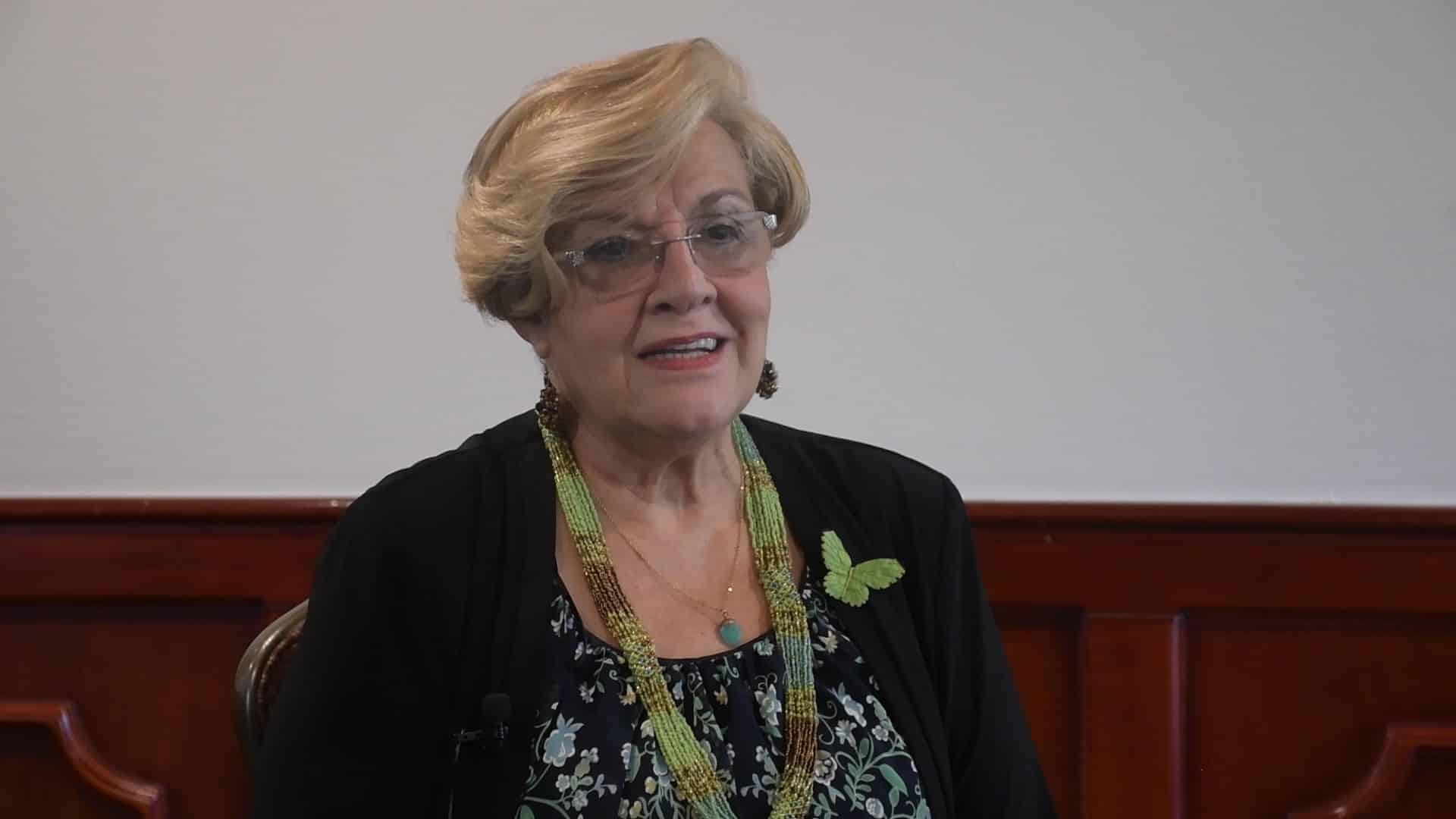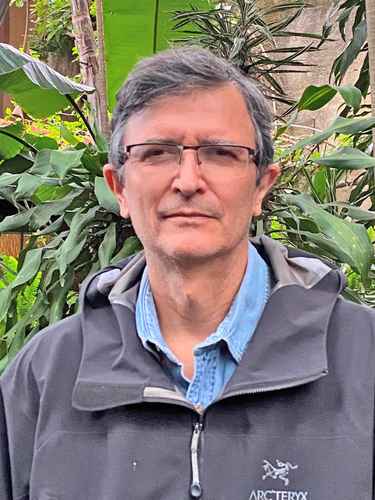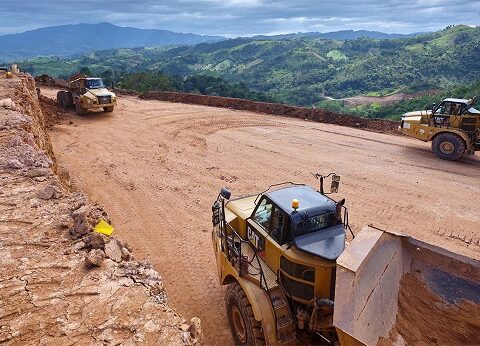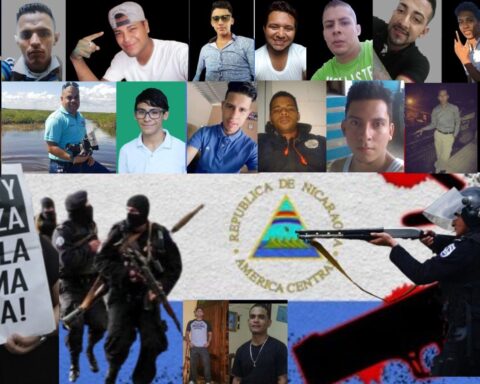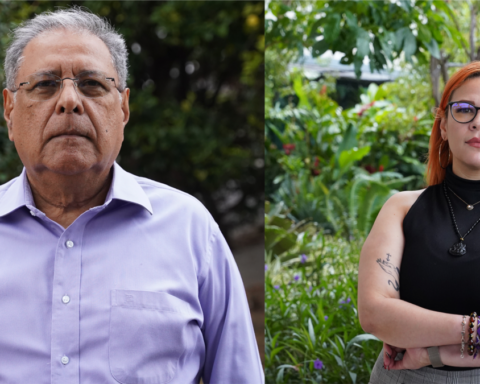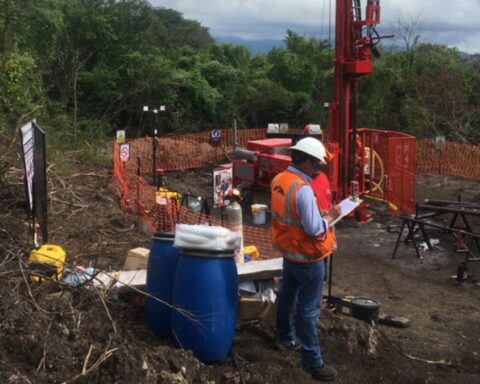Commissioner Esmeralda Arosemena, rapporteur for Nicaragua of the Inter-American Commission on Human Rights (IACHR), affirmed that Nicaraguans live under a “terror regime”, which has progressively deteriorated human rights, a situation for which the country was included. for the fourth consecutive year in Chapter IV of the annual report of that organization.
“When we listen to the relatives of political prisoners, the internal displacements, the obstacles to accessing their identity documents, the regime of harassment, of silencing all voices, when you find yourself in a situation of this kind, what political regime is there? A regime of terror, which has a population that is truly frightened, even of speaking, and I speak of speaking because closing, for example, the Royal Academy of Language, is an example of not even wanting to listen to anyone, and that in political issues, democracy and rights, there is no other way to call it”, he assured in an interview with This week Y CONFIDENTIAL.
Every year the IACHR updates Chapter IV of its annual report with the names of the states of the Americas, where it considers that the human rights of citizens require “special attention” from the organization. After 25 years, Nicaragua returned to the list of Chapter IV, in March 2019, when the IACHR warned in its 2018 annual report about the serious human rights crisis that was beginning in the country after the repression of the Ortega-Murillo regime against social protests.
The rapporteur for Nicaragua assured that this continuous social, economic, political and human rights crisis, which has been going on for more than four years, keeps Nicaraguans “afraid of living life, under great anguish, pressure for daily life, for that development of their work, of going to school, of fulfilling the things that as a human being you have daily”.
IACHR denounces new phase of repression in 2021
The Chapter IV of the 2021 annual report of the IACHR refers that Nicaragua shows “progressive deterioration of the human rights situation and the rule of law.” The Commission notes that last year there was an “increase in acts of harassment against people identified as opponents of the Government in the framework of the elections held in November 2021.”
It denounces that in this “new phase of repression, more than 30 people were detained between the months of May and August 2021, including important social leaders, human rights defenders and journalists.”
The Ortega-Murillo regime currently keeps more than 190 people imprisoned for political reasons in the different prisons in Nicaragua.
The IACHR verified “the serious conditions of detention in which the persons deprived of liberty detained in the context of the protests that began in 2018 find themselves and, in particular, the more than 30 detained persons who remain in El Chipote.”
The document indicates that political prisoners have been subjected to situations of cruel and inhuman treatment, to the application of isolation regimes without objective criteria, as well as constant interrogations at various times of the day.
Commissioner Arosemena expressed special shock at the situation of isolation in punishment cells and solitary confinement in which political prisoners Dora María Téllez, Tamara Dávila, Ana Margarita Vijil and Suyen Barahona have been held for more than a year.
He explained that as a Commission they have gathered information on “all these facts, all these situations, testimonies, in order to be able to evaluate, in this particular, the very specific issue of women in detention, deprived of liberty, in subhuman conditions, since they are acts of torture. and documenting them will allow, at a given moment, the demand for responsibilities in the face of these crimes against humanity, in the face of these acts of torture.”
The international community must remain vigilant
The IACHR rapporteur stressed that the region must seriously evaluate the situation in Nicaragua and not allow Nicaraguans to continue living “such a difficult, harsh situation.”
In addition, he considered it key that the international community apply measures that question the State of Nicaragua about “its international obligations” and that “all external and internal actors remain committed to the complaint, with constant monitoring, keeping the international community on alert.” about all the human rights violations that continue to be committed in Nicaragua.
“Our report goes along these lines, with an identification of all the events that we were able to collect in 2021 are reflected in this report, precisely to maintain this call to the international community of the need to be aware of what is happening in Nicaragua,” he said.
The commissioner indicated that as a Commission, in the report, they also took into consideration the Resolution of November 22, 2021, adopted by the Inter-American Court in the framework of the “matter Juan Sebastian Chamorro and others with respect to Nicaragua”, in which the “non-acceptance and rejection of the State of Nicaragua to the Provisional Measures adopted by said Court is stated, as well as the effective non-compliance with the orders contained in its Resolutions regarding persons deprived of liberty in Nicaragua identified as opponents of the current Government”.
The Inter-American Court, according to the annual report of the IACHR, determined “to submit to the consideration of the General Assembly of the Organization of American States Nicaragua’s contempt for its decisions”, since it has refused to execute the orders for the immediate release of more than 30 political prisoners.
Arosemena explained that “the Inter-American Court has this power that in the face of ignorance on the part of a country, it communicates to the political body of the great system to determine what is appropriate for calls for attention in the event of non-compliance with the mandates of that court. So, it is now up to the OAS to do the same, the call to fulfill the obligations of a State, which as a member of the international community has to respond.”
He recalled that although Nicaragua has denounced the OAS Charter –seeking to leave the organization– this has a period of time to enter into force and throughout this period the Commission and the Court “maintain their competence with all the mechanisms it has for the development of its mandate to protect their rights.
“There is a responsibility that is not exhausted because you leave the body. Some powers will be lost once the separation takes place, once the definitive separation of the country comes into force, but all these events of violation of rights, which have happened, and which we are documenting, may be sued within the inter-American system itself” , highlighted the IACHR rapporteur.

